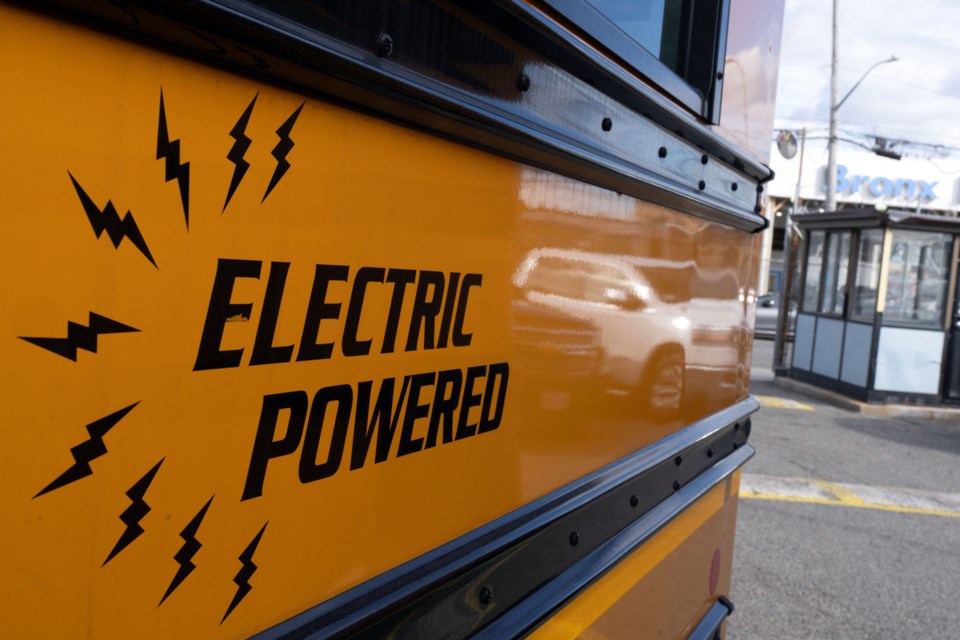New York City received $77 million in federal grants to expand the number of electric school buses and trucks on city streets.
A $61.1 million grant from the U.S. Environmental Protection Agency’s (EPA) Clean School Bus Grant Program will add 180 new electric school buses to the city’s fleet and quadruple the number of electric school buses in New York City, according to a news release.
Additionally, a $15 million grant from the U.S. Department of Transportation’s (USDOT) Charging and Fueling Infrastructure Grant Program will help build a freight-focused electric truck and vehicle charging depot at the Hunts Point Food Distribution Center in the Bronx.
Lastly, the city was awarded $1.5 million from the Joint Office of Energy and Transportation’s Ride and Drive Electric Program to support planning and coordination efforts to electrify New York City’s electric school bus fleet.
“Sustainability touches every part of our school system, from the lessons being taught in our classes, to the waste reduction programs in our cafeterias, to solar energy supporting our schools, and now, to electric buses bringing our kids to and from school each day,” said New York City Department of Education (DOE) Chancellor David C. Banks.
The funds will allow NYC School Bus Umbrella Services and JP Bus and Truck Repair help the city reach its goal of an entirely zero-emission school bus fleet by 2035. This is the second round of Clean School Bus Program grants awarded to the city following an $18.3 million grant for 51 electric school buses last year.
The “Recharge Hub,” located at the Hunts Point Food Distribution Center in the Bronx, will offer electric trucks and passenger vehicles access to both fast chargers and regular chargers, providing a convenient way for electric trucks passing through Hunts Point or the Bruckner Expressway to recharge. The grant will also support the development of an onsite, multipurpose building to host workforce development programming, community events, and a rest area for drivers.
By expanding access to electric chargers, the hub will reduce the need for fleet owners to make expensive charging upgrades at their own locations, remove a significant barrier to electrification, and encourage greater adoption of electric vehicles by trucking companies. Once fully constructed, the hub will be able to charge over 3,000 trucks and 4,000 passenger vehicles annually, eliminating an estimated 5.1 million tons of CO2.




